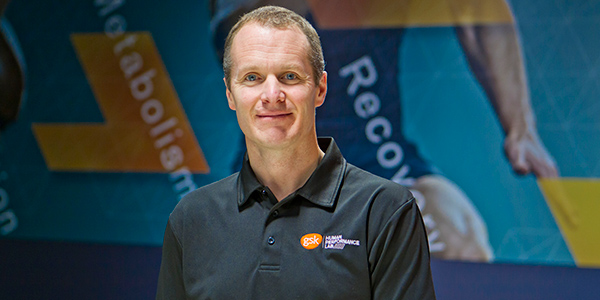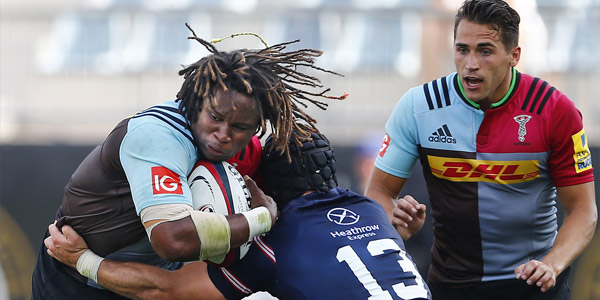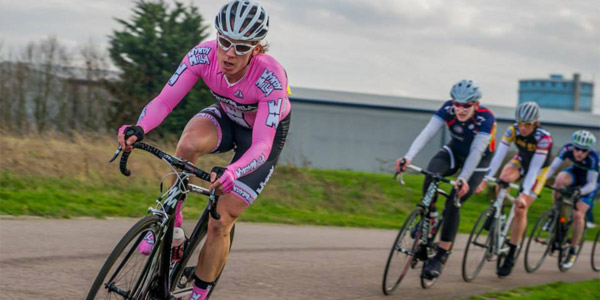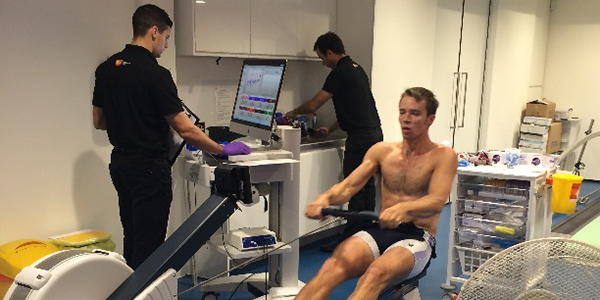GSK HPL welcomes first set of twins for series of assessments
Turner Twins: The adventure guinea pigs visit the HPL for physiological assessments
On Wednesday 13th May, Hugo and Ross Turner visited the GSK Human Performance Lab.
Next month, Ross and Hugo Turner (aka The Turner Twins) will climb the 18,500 ft of Mt. Elbrus in the Caucasus mountain range. They’ll be testing the traditional clothing and equipment used by mountaineers around 100 years ago and comparing it against today’s modern mountaineering equivalent. King’s College London’s Department of Twin Research and the GSK HPL will be conducting research on them to both better understand the effects of high altitude on the human body and to advance medical knowledge.
The twins visited the GSK Human Performance Lab this May to undertake various physiological and body composition assessments in preparation for their challenge in June. We caught up with Ross and Hugo after they’d been put through their paces in and out of the environmental chamber to ask them about their unique challenge.

Tell us a bit about your challenge and what you’re hoping to achieve
"We’ll be climbing Mt. Elbrus which is one of the coveted 7 summits (highest mountain on each continent) standing at 5,642m (18,510ft). The mountain is located in Russia and will take about 2 weeks to climb. The route will be a full traverse of this giant twin peaked mountain and one of the toughest summit days in the world (gaining over 2,000m in altitude).
We’ll be testing the traditional clothing and equipment used by mountaineers around 100 years ago and comparing it to today’s modern mountaineering equivalent. King’s College London’s, Department of Twin Research and GSK’s Human Performance Lab, will be conducting research on us to better understand how our bodies will be affected and to monitor these changes to help advance physiological and medical understanding."
Why Mount Elbrus?
"Mt. Elbrus is the first mountain that we’ve climbed so it’s important to train and understand how our bodies will be affected at high altitude, which will help us climb a higher peak in the Himalayas. The mountains only takes two weeks to climb which means we don’t have to be away for months at a time and won’t costs us the earth to climb. It’s a great all-rounder to start our mountaineering careers off."
What other challenges or events have you taken part in that you think will help you with this challenge?
"Having rowed the Atlantic Ocean in 2011/12 we’re now comfortable with the psychological battles which take place on these extreme expeditions, so now it’s a matter of looking after our bodies and making sure we complete the challenges we set ourselves.
It took 42 days of extreme hardship to row across the Atlantic so now any challenge looks achievable - we just have to make sure we go through all the training and thorough preparation before we leave in order to maximise our chances of success.
Greenland taught us a huge amount in terms of our physiological preparations and having been rescued half way across the ice cap, we’ll be sure not to make the same mistake twice. Failure is always a learning curve, which is ultimately why we take these expeditions on; to learn something about ourselves."

You’re wearing different clothing but are your training regimes also different?
"Our training regimes are relatively similar - okay we don’t train together all the time but we’re both cycling, running and trying to live by the climbers’ motto ‘small car, big engine’. We’ve focused on becoming reasonably lean so we’re not carrying extra body mass and we’re using the same altitude training equipment."
...and how have you adjusted your nutrition in preparation?
"Nutrition hasn’t specifically changed, but we’re both making sure what we eat compliments our training, so getting the balance of carbs and protein is key to building the right muscle. We need all the muscle we have to be as lean and as strong as possible so we reduce the effects of altitude on our bodies."

What did you do during your visit to the HPL and what is your impression of the facility?
"Our visit to GSK HPL was so much fun but it also had a serious focus - how our bodies will be affected on the climb from a physiological stand point. That’s pretty much why we do these expeditions - to have fun, to have some serious elements thrown in and to ultimately benefit others. When we arrived we took an internal thermometer pill (it was huge) to track our core temperature before we jumped onto a treadmill outside the environment chamber to get some base line readings.
We were both wearing the same clothing for these initial tests as this would then have no bias and neither of us would have an advantage over the other. These baseline readings could then be used to track changes in the environmental chamber which was set to -15C with wind chill. Here we used the clothing and equipment we’d be using on the mountain - one of us in the old kit and the other in the modern day equivalent."
Read more about the other extreme environment and elite athletes the GSK HPL’s scientists support.
Posted
21/05/2015
Featuring

The Turner Twins
Extreme Endurance Athletes
Related content
GSK HPL and the Brownlee brothers take their first steps on the Road to Rio
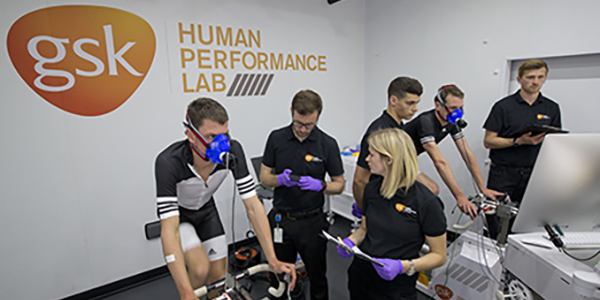
Brentford FC begin pre season testing at the GSK Human Performance Lab

